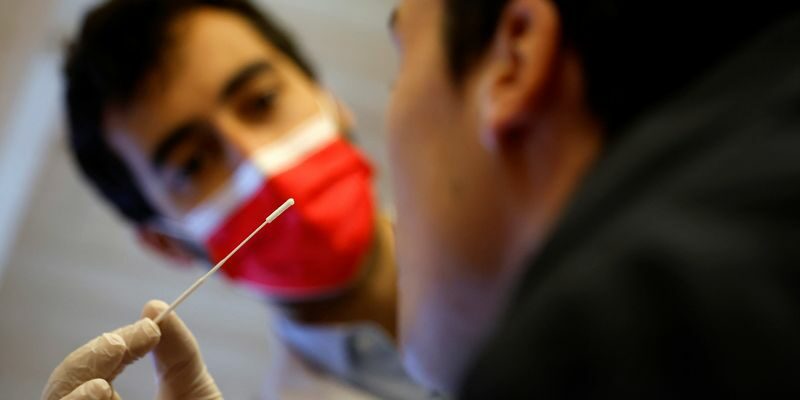PARIS (Reuters) – France will drastically reduce its capacities for sequencing the genome of the SARS-CoV-2 coronavirus even as the end of the “zero COVID” policy in China raises fears of the appearance of new variants, France reported on Friday. Inter.
France created in 2020, at the start of the COVID-19 pandemic, a genomic surveillance center for SARS-CoV-2 viruses, in order to “detect the emergence and spatio-temporal distribution of variants”.
EMERGEN (Consortium for surveillance and research on infections with EMERgent pathogens via microbial GENomics) brings together eight platforms, in particular the Institut Pasteur in Paris, the Hospices Civils de Lyon, the CHU Henri-Mondor in Créteil and the infectious center of the APHM of Marseilles.
However, underlines France Inter, EMERGEN “is supposed to stop on December 31”.
“From next week, only two platforms out of the eight will carry out this variant monitoring”, specifies the radio.
The Ministry of Health confirmed the reduction of the device to France Inter while saying that it was “obviously attentive to the fact that the genomic surveillance of viruses continues”. Reuters attempted to contact the ministry without success.
The French authorities had justified the establishment of EMERGEN on the grounds that “the genomic surveillance of SARS-CoV-2 is today one of the pillars of the fight against the COVID-19 pandemic on a national scale and international.”
“While the so-called ‘screening’ RT-PCR tests make it possible to identify the presence of certain mutations and to suspect already known variants, the sequencing (NGS) of the complete genome of the virus remains the only technique which makes it possible to confirm them, to detect new emerging variants, and to specify the mutations that characterize them”, underlined Santé Publique France.
The French decision goes against the recommendations of the European Union, which recommends strengthening genomic sequencing operations in the face of the new health situation in China.
In a letter to the health ministers of the 27 EU member countries dated December 29, of which Reuters has seen, the Commissioner for Health, Stella Kyriakides, invites them to take stock of national sequencing capacities and consider testing wastewater at airports in particular, in order to detect the appearance of possible new variants of SARS-CoV-2.
The European Union’s health security committee, which met on Thursday for “coordinated action”, did not decide on new measures. A new meeting is scheduled for next week, according to a European source.
(Written by Sophie Louet, with contributions from Philip Blenkinsop in Brussels, edited by Myriam Rivet)
